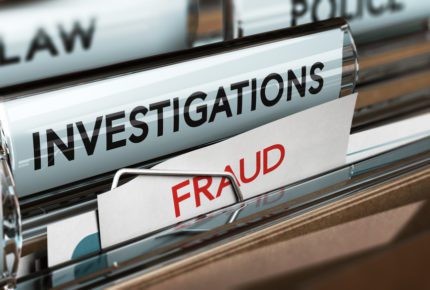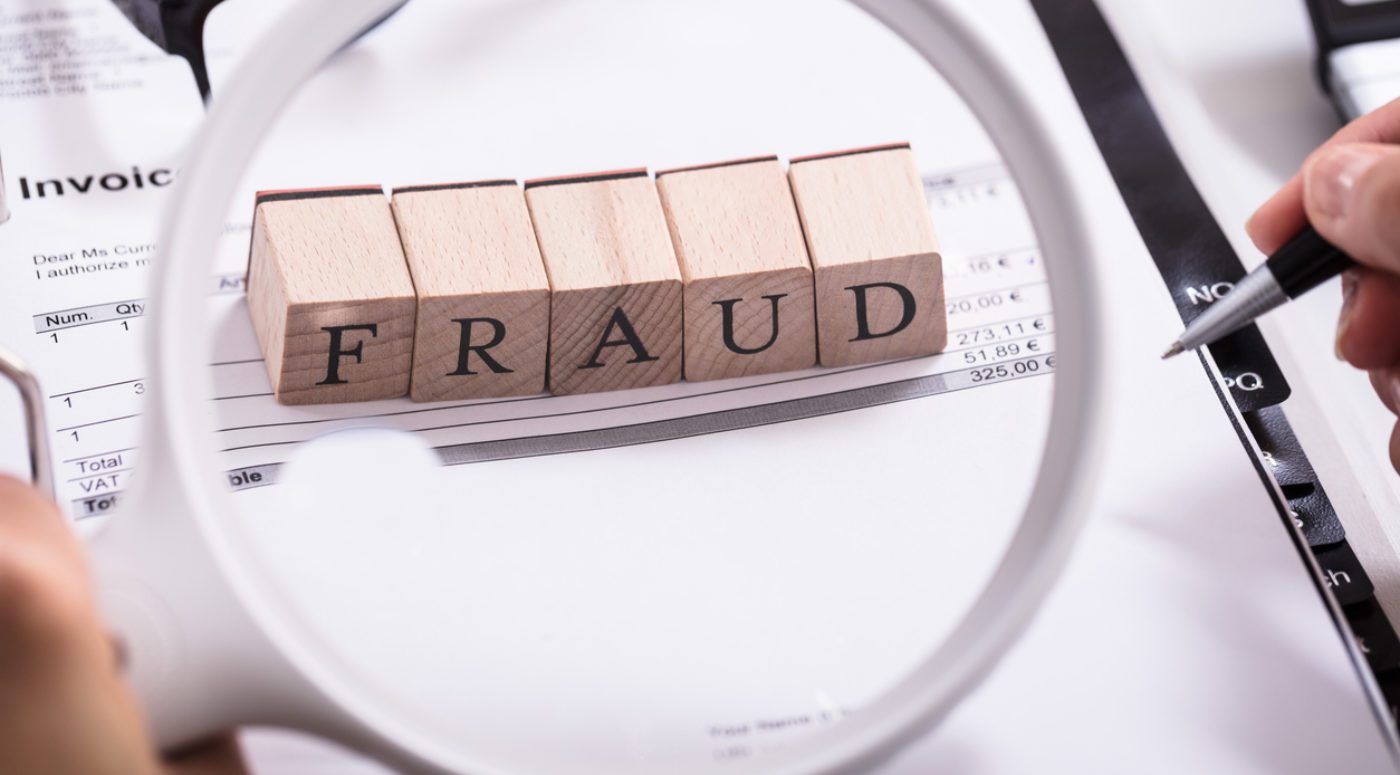

The government took swift action during the Covid-19 pandemic to extend financial support to businesses. However, the haste with which relief measures were put in place resulted in millions of pounds being wasted, through a combination of error and fraudulent claims. If your business has come under suspicion, you might be interested in learning more about these types of schemes and what happens to those suspected of defrauding them.
What are the different types of Covid-19 loans and grants fraud?
More than £75 million in Covid loans was approved for UK businesses through the
Coronavirus Business Interruption Loan Scheme, Bounce Back Loan Scheme (BBLS), and Coronavirus Large Business Interruption Loan Scheme (CLBILS).
Fraud relating to Covid-19 loans and grants is dealt with under the Fraud Act 2006. The Act sets out three different types of fraud, fraud by false representation, fraud by failing to disclose information, and fraud by abuse of position.
Coronavirus Business Interruption Loan Scheme (CBILS)
The Coronavirus Business Interruption Loan Scheme (now closed) was designed with the aim of providing financial support to small businesses in the UK, whose revenue and cash flow had been reduced due to the restrictions put in place in response to the Covid-19 pandemic. Some companies made fraudulent applications under the scheme, seeking support for dormant companies.
Bounce Back Loan Scheme (BBLS)
Of all the government initiatives designed to provide relief from the Covid-19 pandemic, Bounce Back loans received the highest number of fraudulent applications. The BBLS assisted companies in borrowing between £2,000 and £50,000 at a low interest rate. One of the conditions of the loans was that they were not to be used for personal purposes, but they could be used to purchase company assets such as a vehicle, if it was for the benefit of the business. Fraud occurred where Bounce Back loans are obtained on the basis of fraudulent misrepresentations.
Coronavirus Large Business Interruption Loan Scheme (CLBILS)
The Coronavirus Large Business Interruption Loan Scheme was designed to assist medium to large size businesses access finance. This loan was available for businesses with a turnover of more than £45 million. Whilst more incidents of fraud were documented in respect of loans for small businesses, loans for bigger businesses have been handed out under the veil of secrecy. Following Brexit, the government changed the law so that it does not have to disclose loans of less than £500,000. Campaign groups have highlighted that this has left the door open for high level corruption.
Future Fund
This was a fund set up by the UK government to support UK companies. The support ranged from £125,000 to £5 million. In order to qualify, the company was required to obtain at least equal match funding from private investors. This fund is also known to have experienced fraud, for as much as £29 million in total.
Furlough scheme
The Coronavirus Job Retention Scheme provided grants to employers to enable them to continue to pay staff during the Covid-19 pandemic. The scheme ‘furloughed’ employees at 80% of their wages, meaning that the employees were still paid even where they were unable to work due to Covid-19 restrictions. The furlough scheme was hit by significant levels of fraud due to lax due diligence checks which were intended to promote easy access to the scheme.
Companies were placed under extreme pressure by the Covid-19 pandemic, making it difficult to meet basic running costs, even with government support. This led to fraudulent claims being made in respect of employees who no longer or had never worked for companies. There have also been instances of companies claiming furlough grants but not paying their workers.
How do I know if I am being investigated for Covid-19 loans and grants fraud?
If you are suspected of Covid-19 fraud, HMRC will investigate your case. This could lead to a criminal prosecution. As of November 2021, at least 60 arrests had taken place as a consequence of Covid-19 loan fraud.
If you do not pay back the money lent to you under Covid-19 loans and grants within the timeframe specified, you could be investigated by the Insolvency Service’s Covid 19 Fraud and Insolvency Service Investigations.
What if my manager told me it was accurate and we were eligible?
A specialist taskforce within HMRC is dedicated to investigating error and fraud relating to Covid-19 loans and grants.
Cases which are attributed to error, i.e. accidental misuse of the loan support scheme, will not result in criminal sanctions. However, if you are found to have dishonestly claimed loans or grants, you may be subject to a criminal investigation.
What will happen next?
If you or your company has come under suspicion of criminal misconduct, you may be asked to attend a voluntary interview. Do not be fooled, though: a voluntary interview is not just an informal chat. You will be given a caution before it begins, and any answers you give, or your failure to provide relevant information could later be used against you in court. Alternatively, you could be arrested on suspicion of fraud, and interviewed.
What is the court process if I am prosecuted?
If you are charged with Covid-19 fraud, you will be summoned to appear at the Magistrates’ Court for a first appearance. From there, your case may remain within the Magistrates’ Court, or in serious cases it could be sent to the Crown Court.
If you plead not guilty, your case will be listed for a trial, where the prosecution will present their case, and you will have the opportunity to present your defence. Trials for fraud can be highly complex, and cases can go on for many weeks and even months. If you plead guilty, your case will go straight to sentencing.
Will they close my company?
The Insolvency Service can petition the court to wind up companies that it concludes have been involved in Covid-19 loan fraud. The court has the power to disqualify company directors. For example, a company director has been disqualified for 12 years for defrauding the Bounce Back Loan Scheme of £50,000 and transferring the cash to himself just days before his company went into administration. This director also defrauded the bank, by forging a document that suggested that the winding up order had been revoked.
Under the previous law, the Insolvency Service could only disqualify directors whose company has been subject to a Winding Up Order; this made it difficult to take action where the company had been voluntarily dissolved by the director. However, this has now changed with the coming into force of the Rating (Coronavirus) and Directors Disqualification (Dissolved Companies) Act 2021. This Act allows the Insolvency Service to disqualify former directors of insolvent companies, as well as former directors of dissolved companies.
If a director who has been disqualified subsequently resumes a director position within the disqualification period, this can result in criminal sanctions.
Will they freeze my bank accounts?
When a criminal investigation is underway for fraud, the court can freeze your assets to ensure that you do not dispose of cash which is potentially the proceeds of crime whilst the investigation is underway. Your criminal defence solicitor can advise you if this is likely to happen in your case.
How can I prevent a prosecution?
Whilst there is no sure-fire way of preventing a prosecution, cooperating with the early stages of HMRC’s investigation, and providing information that shows that any mistaken payments were claimed accidentally rather than fraudulently may help you avoid criminal sanctions.
The government has encouraged companies who have made wrongful claims to declare this and cooperate with HMRC. In some circumstances making a pre-emptive disclosure and paying back the claim may be the best way forwards. If you come forward and declare your error and repay the loan, this could help you avoid a conviction. However, whether or not it is wise to come forward and provide additional information to HMRC depends on the facts of your case. You should consult a criminal defence solicitor for advice.
What possible defences are there to Covid-19 loans and grants fraud?
If you did not act dishonestly, you will have a defence to allegations of fraud. For example, if you did not know about claims that the other directors submitted, you may escape criminal penalties. The court will consider whether a reasonable person would consider your actions to be dishonest. Other general defences may also be available, depending on the facts of your case. For example, if you were forced or coerced into fraudulent activity, you may be able to rely upon the defence of duress. If you were mistaken as to key facts and would not have committed the fraud if you had been aware of the true situation, you may be able to rely upon the defence of mistake.
Where to get more help?
If you are being investigated for Covid-19 fraud, you could be facing jail time. Instruct an experienced criminal defence solicitor to represent you. At Stuart Miller Solicitors, we have many years under our belt of acting for defendants accused of serious fraud. Contact us for a no obligation consultation today.
OUR COMMITMENTS TO YOU:
-
Responsive
A legal expert will consult you within 24 hours of making an enquiry.
-
Empathetic
We will always treat you with trust, understanding and respect.
-
Specialised
Your case will be handled by an expert who specialises in your type of offence.
-
Proactive
We will take early action to end proceedings as soon as it is practically and legally possible to do so.
-
Engaged
You will be kept updated on your case at all times. We will provide a named contact available to answer your questions.
-
Caring
We understand this is a difficult and stressful time for you and your family. Our team will support you every step of the way.
-
Tenacious
We will never give up on your case. We fight tirelessly to get you the best possible outcome.
